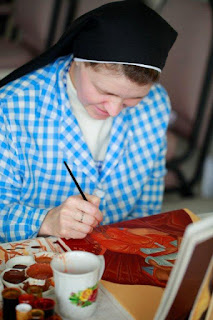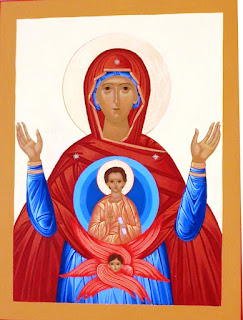We wish all our readers many graces and blessings during the Christmas season.
Here we share with you a Christmas reflection
Christmas Homily
At the Office of Readings during the
coming week we read:
Behold God the Father
has sent down to earth as it were a bag filled with His Mercy; a bag to be rent
open in the Passion so that our ransom which it concealed might be poured out;
a small bag indeed, but full. It is
indeed a small child who is given to us, but in whom dwells all the fullness of
the Godhead. (From a sermon by St
Bernard).
We celebrate tonight God’s coming
among us – not as a man of power but as a baby.
He could have chosen to come as a fully grown man but he comes as a
vulnerable baby and what could be more helpless than a newborn baby? He could
have chosen rich parents who would provide the maximum amount of comfort – but
he chose Mary and Joseph, both poor in material things but with hearts wide
open to receive all the love which this Baby wishes to bestow. The Good News is first proclaimed to simple
shepherds, the outcasts, those without status while “His own people did not
receive Him” (John 1 : )
In our yearly celebration of
Christmas we remember his coming in Bethlehem
Throughout the ages He is the One
who takes the initiative in coming to us – He tells Moses that He is “well
aware of the suffering of His people” and comes to rescue them. He reveals Himself as “the LORD, a God
merciful and gracious, slow to anger, and abounding in steadfast love and
faithfulness, keeping steadfast love for thousands, forgiving iniquity and
transgression and sin.” In his letter to
Titus, St Paul
May Mary, the Mother of Mercy, who
accompanied her Son from His birth in Bethlehem to His death on Calvary, watch
over us and teach us to “discover the joy of God’s tenderness” and to be
faithful to our mission as Dominican Nuns of perpetuating Dominic’s prayer for
sinners and all the down-trodden, the afflicted and all the poor suffering
people of our world. May our celebration
of this Christmas be a source of light and joy for the whole Church and our
world.




































